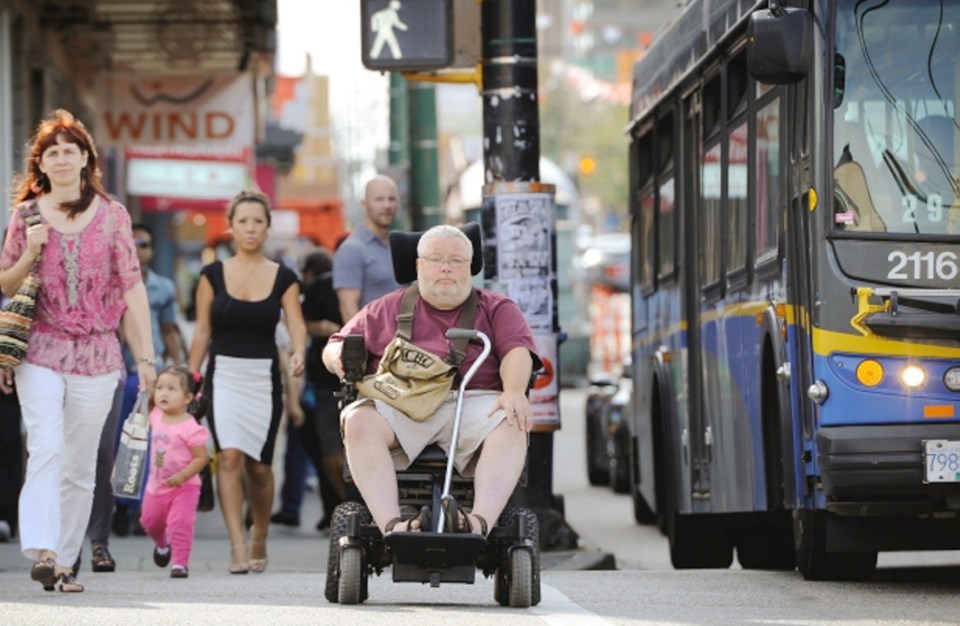The freedom and emotional well-being of many seniors would be put at risk by tougher regulations for personal mobility scooters and electric wheelchairs, says a 79-year-old Victoria man who uses a scooter to get around.
Samuel Nesdoly, a retired professor from Acadia University, said Friday the mobility afforded by these machines “is so very, very critical — otherwise, you’re just sort of stuck and end up housebound.”
People with disabilities fare far worse emotionally when they can’t get out and about, said Nesdoly, who has been driving a mobility scooter for six years.
He acknowledges that some users might not give way to pedestrians or watch for other traffic, but notes that a requirement to prove proficiency would raise issues.
“What are the standards and who’s going to set them? I’m kind of nervous about that whole idea.”
The Union of B.C. Municipalities has backed a resolution from Sidney town council that calls for the regulation, training and testing of motorized wheelchairs and their users.
University of Victoria social policy professor Michael Prince said the issue should spark a broader conversation about “accessibility [and] livability but with a real eye to safety.”
There’s a narrower debate about whether local governments should be given the power to enact these regulations, said Prince, author of a book on disability issues, Absent Citizens.
“I want to frame it more widely, that this is an opportunity for a larger conversation,” Prince said. “Communities across the province have been looking at being more age-friendly, so this is another way of coming at this.”
There are obvious concerns about seeing these motorized vehicles on busy roads without orange flags or other high-visibility items, Prince said.
“Some people think these people have a sense of entitlement — they go on the road with what seems to be an unlicensed vehicle that makes a Smart car look huge,” he said.
“I think there is a public-interest argument why municipalities feel they have to wade in on this — and that’s clearly to avoid accidents and injuries.”
Wayne Fleet, manager of City Wide Scooter & Wheelchair in Langford, said the idea of licensing operators of motorized wheelchairs “is a lot of crap.”
The problem isn’t with the drivers, he said, but rather “the bloody people who won’t get the hell out of their way. If you’re going to license these things, what about bicycles?
“They’re as much a pain in the butt as people on the sidewalks. You can’t license these things unless you’re going to license bicycles, too,” Fleet said.
Victoria jazz singer Joe Coughlin said talk of regulations for motorized wheelchair operators is nothing new.
“A lot of these folks get these scooters and they’ve never driven cars before. They go six, seven, eight kilometres an hour and if you clip somebody in the ankle, you’re going to break their leg.”
Coughlin has been operating a motorized wheelchair for 25 years without incident.
“Good luck regulating this. Who’s going to enforce it? A bylaw officer? It’s crazy,” he said.
“If somebody came up to me and said: ‘Show me your licence,’ I’d say, ‘Show me your badge.’ ”
Susan Brice, director of Victoria Silver Threads, said she supports Sidney’s quest to regulate motorized wheelchairs.
“I know how many scooter users there are in Sidney,” said Brice, who worked with Silver Threads in Sidney five years ago.
“I think there should be, for everybody’s sake — for the scooter users, for pedestrians, for motorists — some effort made to regulate and license [these vehicles].”
At the very least, Brice said, there should be sessions to make operators aware of their responsibilities.



